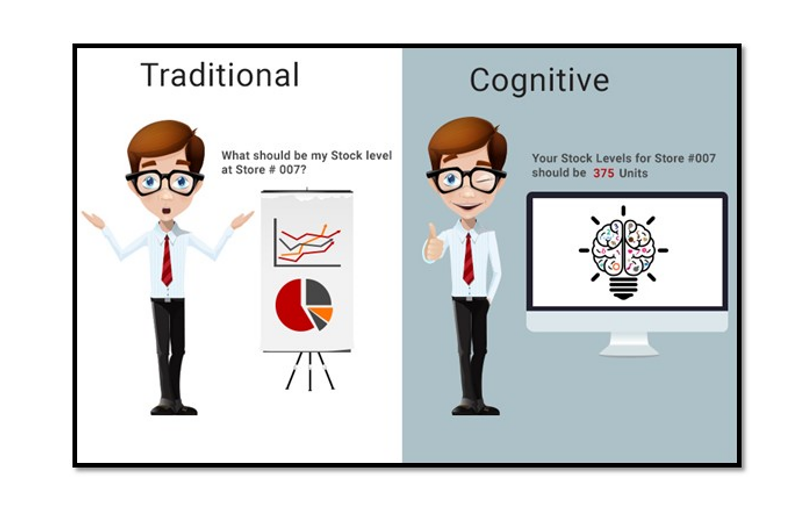Transforming Financial Landscapes: The Power of Cognitive Computing
In the ever-evolving realm of finance, a groundbreaking force is reshaping the landscape – cognitive computing. Beyond traditional approaches, this innovative technology is introducing unprecedented insights and efficiency into financial operations. Let’s delve into the transformative influence of cognitive computing in the financial sector.
Unleashing Intelligent Insights: The Core of Cognitive Computing
Explore the transformative power of cognitive computing in finance at rockawayuppercrust.com. At its essence, cognitive computing is about harnessing the intelligence of machines to comprehend, analyze, and derive insights from vast datasets. In finance, this translates into a revolutionary approach to decision-making, moving beyond conventional algorithms to embrace the realm of intelligent insights.
Data Processing Mastery: Navigating the Sea of Financial Data
In the complex world of finance, data reigns supreme. Cognitive computing excels in processing vast amounts of financial data with speed and accuracy. Whether analyzing market trends, risk factors, or customer behaviors, the cognitive prowess enables financial institutions to navigate the sea of data with unparalleled efficiency, unlocking valuable insights in real time.
Enhanced Customer Experiences: Tailoring Financial Services
Cognitive computing in finance extends its influence to customer experiences. By understanding individual preferences, behaviors, and needs, financial institutions can leverage cognitive systems to personalize services. From tailored investment advice to predictive financial planning, cognitive computing enhances customer interactions, fostering a more engaging and user-centric financial experience.
Risk Management Revolution: Proactive Decision-making
One of the remarkable impacts of cognitive computing is in the realm of risk management. Traditional risk models often fall short in adapting to dynamic market conditions. Cognitive systems, equipped with machine learning capabilities, excel in proactive risk assessment. They can analyze emerging risks, detect patterns, and provide timely insights for informed decision-making.
Automating Repetitive Tasks: Efficiency Redefined
In the financial sector, numerous tasks involve repetitive processes that are prone to human error. Cognitive computing steps in to redefine efficiency by automating these tasks. From routine data entry to compliance checks, the technology streamlines operations, allowing financial professionals to focus on more complex and strategic aspects of their roles.
Market Predictions and Portfolio Optimization: Strategic Insights
Cognitive computing excels in market predictions and portfolio optimization. By analyzing historical data, market trends, and global events, cognitive systems can provide strategic insights for investment decisions. This proactive approach to portfolio management enhances the ability to capitalize on opportunities and navigate market fluctuations with agility.
Real-time Fraud Detection: Safeguarding Financial Integrity
Fraud detection is a critical concern in finance. Cognitive computing introduces real-time fraud detection capabilities by analyzing transaction patterns, user behaviors, and anomalies. This proactive stance enhances the ability to identify and prevent fraudulent activities swiftly, safeguarding the financial integrity of institutions and their clients.
Ethical AI and Regulatory Compliance: Navigating Complexities
As cognitive computing becomes integral to finance, addressing ethical considerations and regulatory compliance is paramount. Financial institutions must ensure that AI algorithms adhere to ethical standards and comply with regulatory frameworks. This commitment to ethical AI practices ensures responsible and transparent deployment of cognitive computing in the financial sector.
Continuous Learning and Adaptation: Staying Ahead
In the dynamic world of finance, staying ahead requires continuous learning and adaptation. Cognitive computing systems are designed to evolve and improve over time. Through machine learning algorithms, these systems can learn from new data, adapt to changing market conditions, and enhance their capabilities to meet the evolving needs of the financial landscape.
Cognitive Computing in Finance: A Strategic Imperative
In conclusion, cognitive computing is not just a technological trend but a strategic imperative in the financial sector. Its ability to process vast data sets, derive intelligent insights, enhance customer experiences, and revolutionize risk management positions it as a transformative force. As financial institutions embrace cognitive computing, they embark on a journey of innovation and efficiency, shaping the future of finance.













